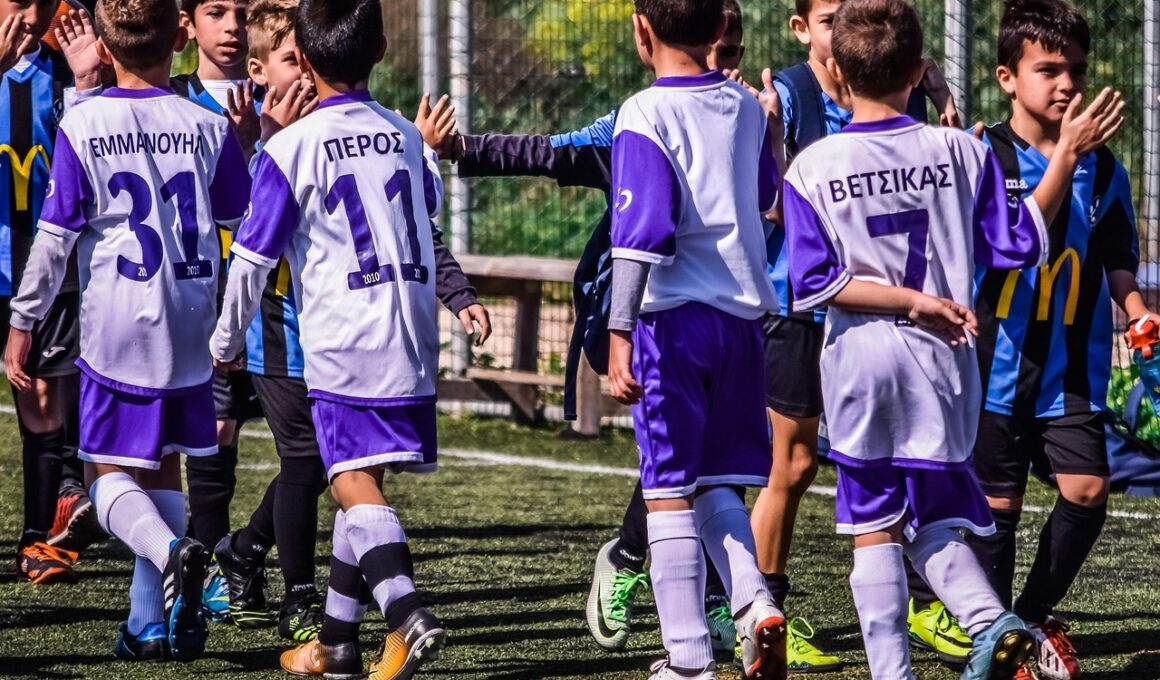Understanding Cheating and Its Impact on Fair Play
Cheating in sports has become an increasingly pressing issue, raising concerns about integrity and fairness. Athletes often resort to unethical practices for various reasons, driven by the desire to win, significant pressure from peers, teams, and sponsors, as well as personal ambitions. Cheating can take many forms, including the use of performance-enhancing drugs, match-fixing, and equipment tampering. The broader implications of cheating extend beyond individual athletes, as it undermines the very spirit of sport, breeding mistrust among competitors and fans alike. Fair play is a foundational pillar of sports, deeply embedded within its values and traditions. Every athlete is expected to compete honestly, a principle that fosters respect and equality. Cheating, however, disrupts this balance and can tarnish the reputation of sports organizations. To effectively combat cheating, sports authorities must actively educate athletes about the importance of ethics. Furthermore, strict penalties for violations could deter potential cheaters, reinforcing the importance of integrity. Acknowledging and addressing cheating within sports will help uphold the core values that make athletics an essential and cherished aspect of society.
Cheating negatively impacts not only the players involved but also the entire sporting community, creating an environment built on dishonesty. This leads to a culture where success is measured by the ends rather than the means, challenging the underlying principles of fair play that sports aim to cultivate. Spectators, fans, and aspiring athletes often lose faith in the integrity of competitions when they witness blatant cheating. Trust is crucial in maintaining the authenticity of any sport; once it is lost, the entire system is at risk. Young athletes who see their heroes engage in cheating may feel pressured to follow suit, believing it to be an acceptable means to achieve success. By fostering an environment rooted in ethics and accountability, sports organizations play a vital role in shaping future generations. Educational programs focusing on the values of fair play and sportsmanship can have a significant impact on young athletes. Organizations must prioritize teaching not only the technical aspects of the game but also the moral implications of their actions. Exploring the consequences of cheating and promoting the joy and satisfaction derived from competing honorably is essential in developing future sports champions.
The Societal Implications of Cheating
Beyond individual athletes, the societal implications of cheating are far-reaching. When cheating occurs, it can lead to disillusionment among fans and participants, impacting attendance, viewership, and overall engagement. Many individuals invest their time and emotions into supporting athletes and teams, and cheating disrupts their connection to the sport. The psychological effects can be profound, as compromised integrity can tarnish cherished memories associated with beloved sports moments. Athletes who cheat can also face backlash from the community, leading to a loss of sponsorships and fan support. This fallout emphasizes the importance of maintaining a strong ethical foundation within sports. Furthermore, the lessons learned from cheating can extend to the broader social context. Society often draws parallels between the behavior exhibited in sports and the values we uphold in daily life. Promoting ethical conduct in sports can gradually influence how individuals approach their personal and professional activities. Building a culture of honesty and accountability in athletics, therefore, reflects positively in other areas of society. As an influential platform, sports has the potential to inspire change and fit seamlessly within the framework of ethics that should guide our actions in life.
Addressing cheating and its consequences should be a collective endeavor that involves athletes, coaches, officials, and governing bodies alike. A multi-faceted approach is essential for creating an environment that minimizes the temptation to cheat. Implementing clear guidelines, educational resources, and support systems can guide athletes in making ethical choices. Athletes must be encouraged to report any instance of cheating, fostering a culture where integrity is valued over shortcuts to success. Furthermore, the role of coaches is crucial in shaping an athlete’s approach to competition. Coaches should be strong advocates for fair play, nurturing their athletes’ development into principled individuals who recognize the importance of playing within the rules. Effective communication between all parties involved can lead to enriched understanding regarding ethical practices in sports. It is imperative to have regular discussions and seminars focusing on the significance of ethics and the definition of fair play. This way, everyone engaged in the sporting ecosystem can remain aligned with a shared understanding of what constitutes good sportsmanship and fair competition, working collectively towards upholding the integrity of sports.
The Role of Technology in Combating Cheating
Technology plays a pivotal role in both facilitating and combating cheating in sports. Innovations like instant replay and video assistant referees (VAR) help improve decision-making during competitive events. These technological advancements contribute to minimizing errors and ensuring that fair play is upheld. On the flip side, the same technology can be exploited by dishonest athletes seeking to gain an unfair advantage. Access to information through analytics can lead to strategies that prioritize winning over ethical practices if misused. Consequently, it becomes crucial for sports organizations to stay ahead of technological trends, establishing regulations that ensure fair play remains paramount amid the modernization of sports. Collaboration with technological experts can guide the development of systems that prevent cheating while fostering transparency. Moreover, implementing stricter monitoring systems to track performance can help authorities detect anomalies that may indicate cheating. The integration of technology in training programs can facilitate better understanding of sportsmanship, emphasizing that ethics should not be compromised for personal gain. By proactively addressing the relationship between technology and cheating, we can navigate the complexities of modern sports while ensuring fair competition remains a priority.
A critical component in maintaining fair play is enhancing the role of education and ongoing dialogs about sports ethics. Establishing formal curricula in educational institutions and athletics programs can help build a foundation focused on integrity and fair competition. By embedding ethical discussions into training, athletes cultivate critical thinking skills that challenge them to assess their values consistently. Workshops and seminars led by experts encourage open dialogue about the gray areas surrounding performance, emphasizing that ethical choices are essential to their growth. Additionally, governing bodies must actively engage in continuous education for athletes, coaches, and officials. Such initiatives serve to clarify expectations around conduct and promote a culture of adherence to unwritten rules of sportsmanship. Surveys and feedback mechanisms can also empower stakeholders to voice concerns and share experiences regarding ethics in sports. Implementing these strategies ensures that the conversation around cheating and fair play remains active, encouraging accountability all around. The importance of an ongoing commitment to these educational frameworks cannot be overstated, in the quest to foster integrity and fairness in competitive environments, ultimately benefiting the sporting community as a whole.
The Future of Fair Play in Sports
Looking ahead, the future of fair play in sports necessitates a collective commitment to ethical behavior, accountability, and education. Sustaining momentum in addressing cheating requires an ongoing collaboration among athletes, organizations, and fans. Each segment must recognize its role in upholding the values of integrity and fair play. Additionally, proactive measures to enhance transparency through technology and education can help deter potential cheaters, fostering a culture that elevates sportsmanship. Continuous evaluation of practices and regulations will refine approaches to combating cheating while promoting ethical standards. Encouraging community engagement, volunteerism, and open discussions about sports ethics will further strengthen the shared values that bond participants within the sporting realm. The pursuit of fairness should be woven into the fabric of every sporting event and organization, reinforcing the idea that success should be found within the honor of competition itself. As stakeholders work diligently towards achieving these objectives, we can aspire to restore faith in the integrity of sports. An unwavering commitment to fair play will transform the sporting landscape, leading to a lasting legacy that champions ethics, accountability, and trust in competitive environments.
In the end, the responsibility towards ensuring fair play lies with every individual in the sporting community. Embracing ethical values contributes to the legacy of sports and shapes how future generations perceive competition. Cheating must continuously be met with strategies focused on prevention, education, and accountability. Athletes and officials should unite in their efforts to create a sporting environment rooted in integrity, overcoming challenges posed by unethical practices. The commitment to fair play must persist, influencing everything from grassroots athletics to professional leagues. As society grows increasingly aware of the importance of ethical conduct, further conversations will inspire new approaches to preventing cheating. Emphasizing the substantial joy derived from competing honorably will resonate with both participants and fans alike. Collectively, a shared commitment to fair play engenders a healthier sports community built on trust and mutual respect. The vision for the future is one where sports are celebrated for their ability to unite individuals through shared values, fostering an environment that prioritizes ethics. Ultimately, the journey toward upholding fair play will enhance the legacy of sports, ensuring that they remain a cherished aspect of culture worldwide.


